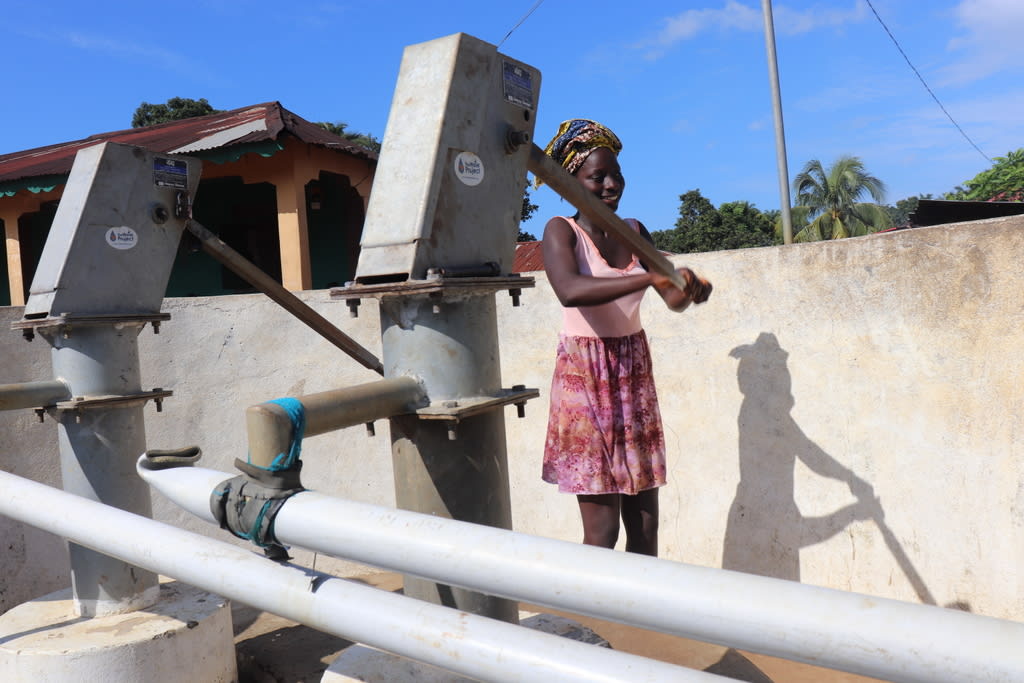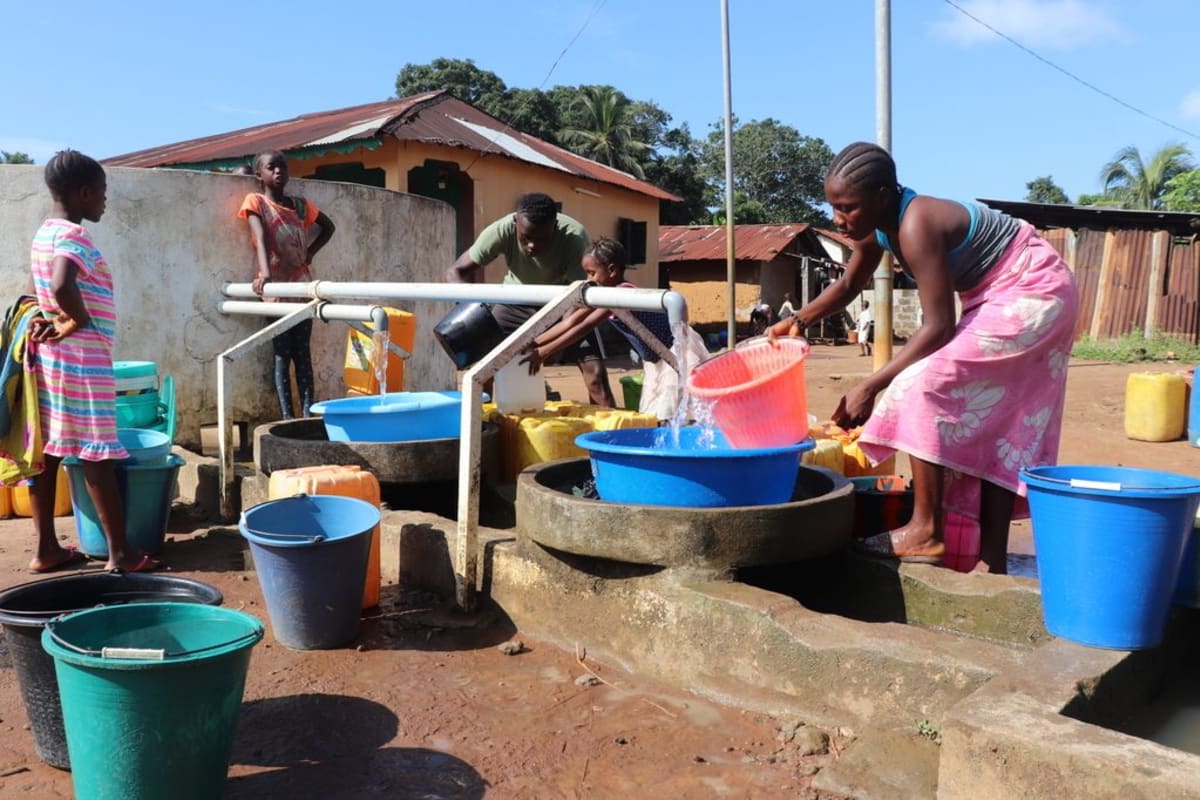January, 2019: Modia Community, 63 Spur Road Project Complete
We are excited to share that there is a safe, reliable well in Modia Community that's providing clean water! Hygiene and sanitation training was conducted, which focused on healthy practices such as washing hands and using latrines.
New Knowledge
The team coordinator, Zainab, called her team together to go through the information collected during a visit and interviews in Modia Community.
On the first morning of hygiene and sanitation training the last call was made to the headman to alert him that we were on our way. This is one of the communities with the highest level of cooperation. They have always told us to keep them informed before any activity so that they can give it their all. So attendance was very good.

Training was held under a mango tree close to the well in front of a carpenter's workshop. It was a hot and sunny day and it was difficult for all of us to fit in the shade, seeing that there were so many participants.
Zainab and her team taught about:
- tippy tap handwashing stations and handwashing

A woman using one of the tippy taps that was constructed during training
- differences between a healthy and unhealthy community

- dish racks and clotheslines
- proper care of the pump
- nutrition
- dental hygiene
- latrines
Every topic interested the participants. They listened to the presentations without interrupting and waited until it was time for the question and answer session. This session was so organized. At the end of every training session, the participants were all smiles. Some pointed accusing fingers on neighbors they know fall short on some of the training topics - and they joked about it as they left for their various homes.

"Our tradition has long-dented holes in our hygiene and sanitation. Most of what I have heard today is alien to not only me, but to most people gathered here right now. Just make a quick survey to prove me right or wrong. No one from among us has ever heard of tippy tap. Handwashing is also one of the most neglected practices. We hope you people are around for reminders in case some of us forget," said Mr. Mattia. We will definitely be back, thanks to our quarterly monitoring visits!
Clean Water Restored
This is such a densely populated area that we decided to try something different. Instead of drilling one borehole down inside of the hand-dug well, we drilled two boreholes and installed two pumps.
The Process:
The first thing the drill team did when they arrived in Modia Community was to contact leadership to find a place to camp.
Here is how we restored clean, reliable water here:
1. Raised the tripod

2. Found the original depth (54.8 feet)
3. Socketed the pipes
4. Installed temporary drill casing

5. Lined up the drill rods
6. Drilled!
Drilling by hand is always hard work. The team made it through 13 feet of sand, bringing the depth to 68 feet. The next day they added ten more feet. After a little more work, the team navigated to a total depth of 81 feet.
The second drill was just as straightforward as the first, with the team getting to 79 feet.

7. Installed screening and filter pack
8. Cemented an iron rod to well lining, and fixed it with an iron collar at the top
9. Bailed the well by hand for three days and flushed it
10. Tested the yield (we got a static water level of 42 feet going at 41 liters per minute - more water than a hand-pump can pull)

11. Built a cement platform, walls, and drainage system
This well required a more elaborate platform and walls because of the two pumps installed. These pumps feed water out of two separate pipes that run through the wall and out to where people fetch water.

12. Installed a stainless steel India Mk11 pump
The hand-drill method allows the team to install the cylinder far below the aquifer so that the community has great water access throughout the year.

13. Water quality test
When we arrived in Modia to celebrate news of clean water, the people had already heard of our coming and were waiting at the well. They even had traditional drummers and people of every age were dancing. Community members shared their vote of thanks and our team followed up by reminding them of the well users' responsibility to take good care of this precious resource!
As if it had been rehearsed, women broke out into one of their favorite songs as the drummers accompanied them. The people never wanted our team to leave.

"First of all I want to express how glad I am for having the first well with two pumps on it. This is a chiefdom record and I am personally proud of it," said Mrs. Sillah.
"My brother, we the women bear the brunt of water shortage in the homes. All what the men care about is water for bathing and even that is our responsibility. They don’t care how far we go to fetch water. So we are the happiest of all groups in this community. Men also are naturally stronger than us. Their resistance to diseases is stronger than us women. Before now, when cholera breaks up here, more women die than men. So the presence of this well has reduced the burden on us. We have also been rescued from potential waterborne diseases. What you have done for us here is huge and only God can pay you."

Since this was such a new kind of technology, we even returned a month later to see if these pumps were both being used by community members. We were so happy to find both pumps producing clean water in a quick, efficient way for the women and children gathered around the well.


 Protected Dug Well
Protected Dug Well


































